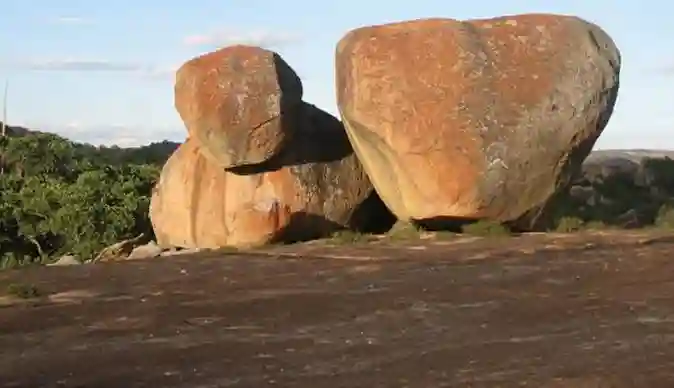Chiefs in the Matabeleland region have urged the National Chiefs Council to investigate the alleged “King Munhumutapa” seeking to conduct rituals at some of the region’s sacred spiritual sites.
The ruling ZANU PF party has written a letter to the National Museums and Monuments, requesting clearance and referral letters to allow “King Munhumutapa” and three others to perform “national rituals” at the Matopos and Great Zimbabwe monuments.
This development is concerning, as the Minister of Local Government and Public Works, Daniel Garwe, recently dismissed the claim of Timothy Chiminya Mujuru being the “King Munhumutapa,” stating that the Zimbabwean Constitution does not have a provision for such a title.
Speaking to CITE, Chief Masuku of Matopo warned that if Chiminya visits the sacred site of Njelele, he should not represent himself as the king, as he will not be allowed to enter the traditional shrines. He said:
The problem is I am not aware of King Munhumutapa because I don’t know any official king in our country, and when he comes to Njelele he should not come as a king because we are not going to allow him.
Anyone can go depending on a challenge they have, wanting to present it there, needing help, but when going to a place saying you are king, yet as leaders we know that we don’t have a king in our country.
There are a lot of people who call themselves king, others say they are King Mambo, King Munhumutapa, or King Khumalo, so that’s not how we work, we work according to the law.
In response to “King Munhumutapa” plans to conduct rituals at spiritual sites, Chief Mathema stressed the importance of maintaining the traditional custodianship of these sacred shrines.
He said the sacred shrines in Zimbabwe have specific families that have been entrusted with the responsibility of caring for and managing them.
These families have deep-rooted, generational connections and knowledge of the proper protocols and rituals to be performed at these sites. Said Chief Mathema:
It’s saddening to hear that some people are coming from other areas who want to do a job that is not theirs. In the first place, as chiefs, we don’t know about this journey.
Before everything else, there is a need to find out where these people are coming from and who sent them in the first place because you cannot just wake up and say you want to go to these sacred places or ancestral sites without anyone directing you. I don’t think so; these are respected houses.
Chief Mathema said the National Chiefs Council should look into the matter as it is likely to cause some problems in the Matabeleland region if it is not attended to.
Chief Masuku of Gwanda said Chiefs have been told several times that the Constitution does not have a provision for a king. He said:
We have been told over and over to the extent that we now understand that the Zimbabwean Constitution does not accommodate a king, so where is this one coming from and how does he work? It’s hard to understand.
The second thing, in our culture, certain people go to Njelele. I don’t even go there, so I don’t know whether he is also one of those families or has the spirit to go to Njelele.
It’s difficult to say he should not go there, maybe he is one of the people with that spirit; it’s also difficult to say he should go, maybe he is not one of them. It’s hard to talk about someone you don’t know.
Njelele is a sacred site located in Matobo Hills and is considered one of the most important spiritual and cultural sites for the Ndebele and Kalanga people.
Njelele is known as the “Rain Shrine” or “Rain Temple” and has been used for centuries by indigenous communities to perform rain-making rituals and ceremonies. It is believed to be a place of spiritual power and connection to the ancestors.
The site continues to draw pilgrims, spiritual seekers, and tourists interested in experiencing the site’s unique cultural and natural heritage.
More: Pindula News

